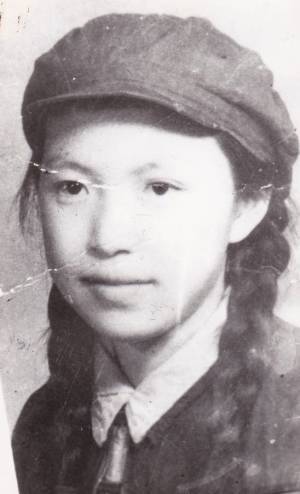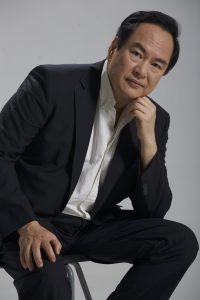On March 29 at 7 p.m., Duke Initiatives in Theology in the Arts (DITA) at Duke Divinity School will host an evening of music and conversation reflecting on the lives and legacies of martyrs, focusing on the stories of Lin Zhao, a Chinese dissident during the Mao era, and Rufina Amaya, the sole survivor of the El Mozote massacre in El Salvador.
Lin Zhao: A Martyr in Mao's China

The first half of the “Performing Faithfully: Music & Martyrdom” event will feature the world premiere of Elegy, commissioned by Duke Divinity from Lu Pei, who is a composer and professor of composition. Elegy was composed in response to the story of Lin Zhao, who was also the subject of Duke Divinity Professor Lian Xi’s book Blood Letters: The Untold Story of Lin Zhao, a Martyr in Mao’s China.

Lu had wanted to compose a piece to honor Lin Zhao for some time, and appreciated the opportunity provided by the commission. “The part of Lin Zhao's story that was particularly inspiring for me was her steadfast faith,” he said. “She stood strong in her struggle against the forces of evil and was unbending in her resistance. That would not have been possible without her faith. My music attempts to reveal Lin Zhao's mental world, and to capture her faith and her inner surges—her prayers and her hopes, her love for humanity and for God. Even though there was much evil and darkness in the world, love still remained, and I use a variation of the Passacaglia in C minor by J. S. Bach at the end to communicate that.”
Martyrs in El Salvador

The second half of the evening will feature a conversation with Salvadoran composer Carlos Colón, assistant director for worship and chapel of the Office of Spiritual Life at Baylor, followed by performances of two of his works: Requiem: Las Lamentaciones de Rufina Amaya, inspired by a survivor of the El Mozote massacre, and Veo Violencia en la Ciudad, composed in celebration of the canonization of Óscar Romero. Colón will be interviewed by Edgardo A. Colón-Emeric, the Irene and William McCutchen Associate Professor of Reconciliation and Theology at Duke Divinity School, who recently wrote a book on Óscar Romero, Óscar Romero’s Theological Vision: Liberation and the Transfiguration of the Poor.
[Learn more about Carlos Colón.]
Colón’s Requiem was inspired by the courageous witness of Rufina Amaya, the sole survivor of the El Mozote massacre, when nearly 1,000 civilians—including 533 children—were slaughtered by U.S.-trained troops in and around the village of El Mozote in December 1981.
One of the most haunting stories is that of a young Christian girl who sang praises even after being shot. Amaya’s story was corroborated by former soldiers who participated in the massacre, and El Mozote remains the worst single massacre in Latin American history.
Writes Colón: “Even though the work specifically commemorates the Mozote Massacre at the beginning of the civil war in El Salvador, it is [my] wish for this work to be a lament for all the victims of the war. As a native of El Salvador, it is my hope that it will be received as a song of remembrance for all the Salvadorans that died during such a tragic chapter of our history.”
Colón’s Veo Violencia en la Ciudad celebrates the 2018 canonization of Óscar Romero, the former Archbishop of San Salvador who was assassinated as he celebrated Mass in El Salvador nearly four decades ago. Romero is considered one of the founders of liberation theology, which interprets the biblical scriptures through the plight of the poor.
Instrumentalists and singers from around the Triangle will join the trio from the Boston Symphony for performances of Colón’s work.
Earlier in the day, Duke Divinity School will host a panel discussion, “Memory and Martyrdom: A Conversation with Theologians and Musicians” with professors Lian, Sujin Pak, Stanley Hauerwas, and Meredith Riedel, along with composers Lu and Colón. That event is open to the public and will take place in Goodson Chapel at 12:30 p.m.
Music & Martyrdom is made possible with the generous support from the Office of the Vice Provost of the Arts at Duke University through a Collaboration Development Grant, and is co-sponsored by the Duke Department of Music, the Department of Asian and Middle Eastern Studies, and the Asian Pacific Studies Institute.